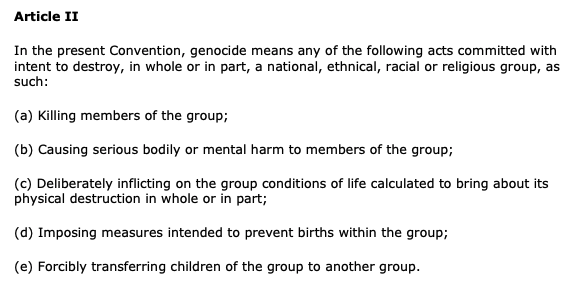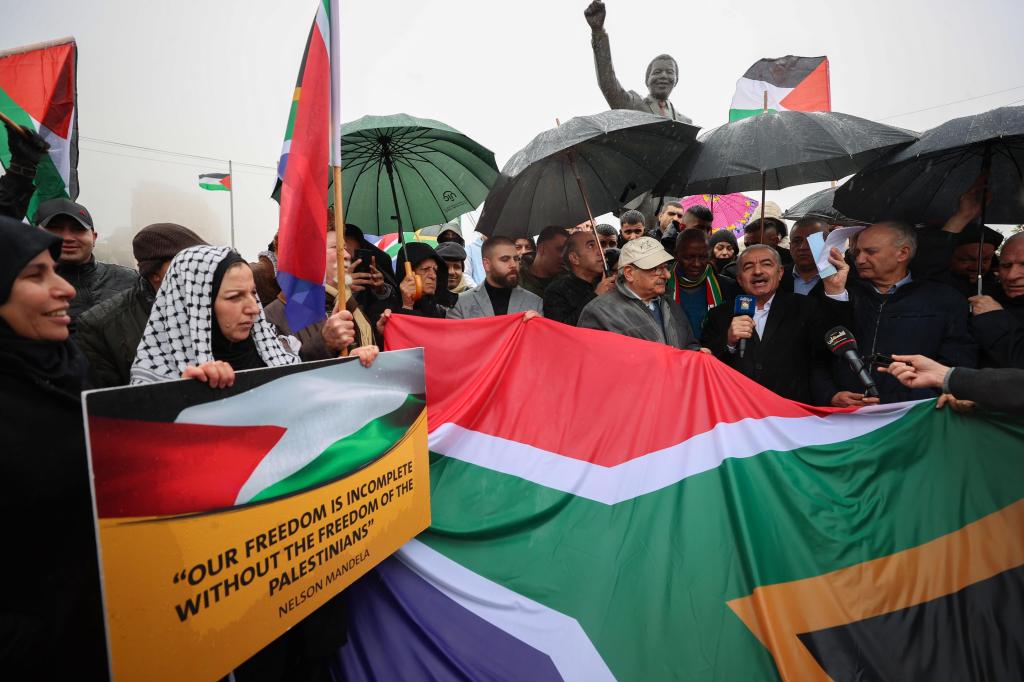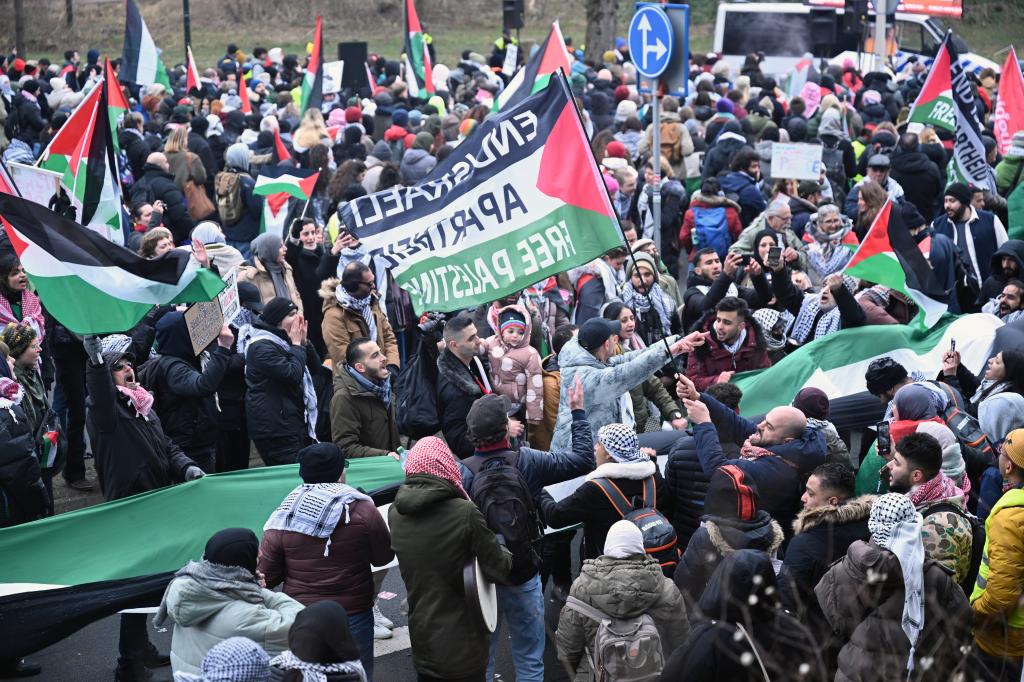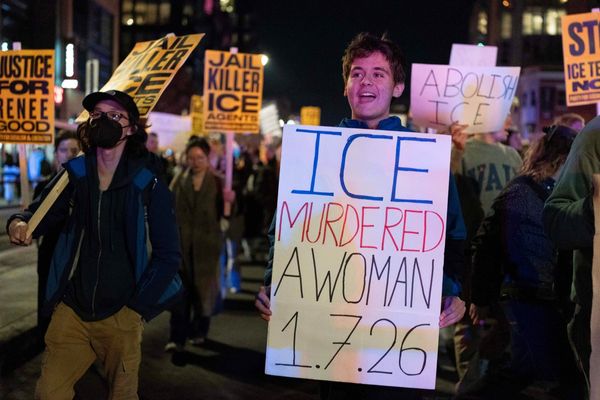
South African history is synonymous with apartheid. Now, 20 years after the people of South Africa elected Nelson Mandela to the presidency and ended a near six-decade apartheid rule, the country is taking the state of Israel to the International Court of Justice (ICJ) over allegations it violated the UN’s 1948 Geneva Convention in its treatment of Gazans in Palestine. If you don’t even know where to start with all that’s happened in this history-making case, read on for a comprehensive explainer.
The landmark case marks the first time any state has attempted legal action over Israel’s occupation of Palestine in the 75 years since the Genocide Convention was ratified.
The two-day public hearing began on Thursday night, and will conclude on Friday when Israel gives its oral defence, but the South African government launched the case on December 29 when it accused Israel of “genocidal acts” in Gaza.
The case is particularly powerful because it is led by The Republic of South Africa, a country which emancipated itself from apartheid as recently as the early 1990s. The fact that it is now taking legal action on behalf of Palestine marks solidarity between one once-occupied people with another, the global south versus the global north.
On top of that, the case could also pressure other countries to make a ceasefire a reality. There’s a lot to unpack and explain, so let’s dive in.
What is the International Court of Justice?
The ICJ, or the World Court, is the highest UN legal body and can adjudicate issues between member states. It’s made up of 15 judges and is different to the International Criminal Court, which tries individuals in criminal cases, not member states.
The ICJ’s rulings are binding (meaning they can’t be appealed by member states) but it can’t actually enforce its rulings. That’s what the UN Security Council does, usually by way of sanctions, but it can also just… not do anything.
So far, the UN Security Council has failed to intervene in the Israel/Palestine conflict, despite 153 countries (including Australia) calling for a ceasefire. It has 15 members, one of which is the United States — which holds a veto. It’s worth noting that White House national security spokesperson John Kirby said on Thursday that the US sees South Africa’s legal case as “meritless, counterproductive, and completely without any basis in fact whatsoever”.
What are South Africa’s allegations against Israel?
South Africa is arguing that Israel has breached Article II of the Genocide Convention, which defines which acts actually amount to genocide.

There are three main arguments South Africa has presented in its case against Israel: the suffering Israel has inflicted upon Gaza, what “self-defence” actually constitutes from a legal standpoint, and how Israeli officials have discussed the military campaign. We’ll explain them in more detail below:
1. Mass killing, wounding and humanitarian suffering in Gaza
Since the Hamas attack in Israel on October 7, more than 23,000 people have been killed in Gaza, and almost 60,000 wounded, according to Al Jazeera’s reports. An additional 330 people have been killed in the Westbank and, according to Palestinian statistics, 1% of Gaza’s population has been wiped out. In other words, 1 in 100 people in Gaza have been killed since October 7.
Israel’s attack on Palestine has now become the deadliest conflict in the 21st Century, with Oxfam calculating that on average, 250 Palestinians are being killed each day. To put that into perspective, the second deadliest conflict of this century was the Syrian Civil War, which saw an average of 96.5 people killed each day.
According to Adila Hassam, South Africa’s senior counsel, women and children made up majority of the fatalities (nearly 10,000 children have been killed in Israel’s attacks, according to Al Jazeera, which makes up around 40% of the deaths).

Hassam told the ICJ that Israel’s “mass killing” of Palestinians in Gaza was a breach of Article II of the Genocide Convention.
“Israel deployed 6,000 bombs per week … No one is spared. Not even newborns. UN chiefs have described it as a graveyard for children,” she said.
“Nothing will stop the suffering, except an order from this court.”
Blinne Ní Ghrálaigh, an Irish lawyer for South Africa, told the ICJ that “according to the World Food Programme, four out of five people in the world suffering catastrophic hunger are in Gaza right now.”
“Each day, over 10 Palestinian children will have one or both legs amputated,” she continued.
“Each day an average of 3,900 Palestinian homes will be destroyed.
“Israel continues to deny its responsibility even as Gaza starves. The aid it has belatedly begun to allow in is wholly inadequate.
“Gaza represents nothing short of a moral failure.”

2. Israel’s right to “self-defence”
British lawyer for South Africa, Vaughan Lowe, argued that Israel is an occupier of Gaza, and therefore laws around self-defence do not actually apply to it.
“Twenty days ago, the Security Council confirmed yet again that Gaza is occupied territory,” he said.
“Though Israel refers to a complete withdrawal from Gaza, it has retained control over access by land and sea and air, and over key governmental functions and supplies of water and electricity. The tightness of its grip may have varied, but no one can doubt the continuous reality of Israel’s grip on Gaza.”
“What Israel is doing in Gaza, it’s doing in territory under its own control,” he continued.
“It’s actions are enforcing its occupation. The law on self defence under Article 51 of the UN Charter has no application.
“No matter how monstrous or appalling an attack or provocation, genocide is never a permitted response.”
Lowe reiterated that all warfare must still be actioned within certain legal bounds.
“Every use of force, whether used in self defence or in enforcing an occupation, must stay within the limits set by international law,” Lowe said.
“South Africa believes that the publicly available evidence demonstrates that the government of Israel and its military is intent on destroying the Palestinians in Gaza as a group and is doing nothing to prevent the actions of others who support that claim.”
3. Genocidal Intent
Genocidal intent is probably the most difficult part of this case to prove, but South African lawyer Tembeka Ngcukaitobi argued that the Israeli government’s own comments throughout the assaults have showed that Israel believes Palestinians must be “destroyed”.
Ngcukaitobi presented the court with comments made by Israeli Prime Minister Benjamin Netanyahu on October 28, when he told troops preparing for a ground assault to “remember what Amalek has done to you”.
“This refers to the Biblical command by God to Saul for the retaliatory destruction of an entire group of people,” Ngcukaitobi said.
He argued that Israeli officials and soldiers “meant what they said” when they made comments about wanting Gaza destroyed.
“Soldiers believe that this language and their actions are acceptable because the destruction of Palestinian life in Gaza is articulated state policy,” he said.
“The evidence of genocidal intent is not only chilling, it is also overwhelming and incontrovertible,” he added.
Tembeka Ngcukaitobi says the distinctive feature of this case is repeated verbalization of genocidal intent by the highest officials of Israel's government and military. "Any suggestion that Israeli officials did not mean what they said.. should be rejected by this court." #ICJ pic.twitter.com/081hZVQjHG
— DAWN MENA (@DAWNmenaorg) January 11, 2024
The lawyer listed specific atrocities in Gaza as “distinctive features” of genocide and an “articulated intent” to destroy Palestinian life, including denying Palestinians food, water, medical aid, sanitation and other “essentials for survival”.
It was also noted in the case that Israel’s *attempts* at humanitarian actions, like evacuation orders pre-bombing, were also allegedly within the realms of genocide because they constitute the mass displacement of people.
“The scale of destruction in Gaza, the targeting of family homes and civilians, the war being a war on children, all make clear that genocidal intent is both understood and has been put into practice. The articulated intent is the destruction of Palestinian life,” he said.
“What state would admit to a genocidal intent? Yet the distinctive feature of this case has not been the silence as such, but the reiteration and repetition of genocidal speech throughout every sphere of the state in Israel,” he said.
What is South Africa demanding?
South Africa is fighting for the ICJ to order Israel to suspend its military campaign in Palestine. Again, the court wouldn’t be able to actually enforce this order — that would be up to the Security Council.
However, this case is likely to last years — so right now, South Africa is demanding “provisional measures”, which are essentially emergency orders that can be applied before the actual case really begins. To argue for these provisional measures, South Africa only has to prove to the ICJ that Israel might be committing genocide — not that it definitely is.
The measures South Africa are demanding are:
- The immediate suspension of Israel’s military operations in and against Gaza.
- The Republic of South Africa and Israel to both, in accordance with their obligations under the Convention on the Prevention and Punishment of the Crime of Genocide, take all reasonable measures within their power to prevent the genocide of Palestinian people.
- Israel to desist from the commissioning all the acts which are in the scope of Article II of the Convention (particularly the killing and inflicting harm on Palestinians).
- Israel to submit a report to the ICJ on all the measures its taken to make these demands a reality within one week of the order, and with regular updates until the case is finalised
- Israel to not only refrain from but prevent any action which might aggravate, extend or complicate the court case.
How has Israel responded to South Africa’s genocide case?
Israel has vehemently denied South Africa’s allegations of genocide, with one spokesperson going so far as to imply South Africa had some kind of allyship with Hamas.
“We are fighting terrorists, we are fighting lies,” Netanyahu said, per Al Jazeerah.
Lior Haiat, spokesperson for the Israeli Ministry of Foreign Affairs, said Thursday’s hearing was one of the “greatest shows of hypocrisy in history, compounded by a series of false and baseless claims”.
He then accused South Africa of being Hamas’ “legal arm”.
Prime Minister Benjamin Netanyahu said the hearing showed the world had turned “upside-down”.
“Today we saw an upside-down world. Israel is accused of genocide while it is fighting against genocide,” he said.
“Israel is fighting murderous terrorists who carried out crimes against humanity: They slaughtered, they raped, they burned, they dismembered, they beheaded – children, women, elderly, young men and women.
“The hypocrisy of South Africa screams to the heavens. Where was South Africa when millions of people were killed or torn from their homes in Syria and Yemen, by whom? By partners of Hamas.”
Netanyahu said Israel would maintain the right to defend itself until it had achieved “total victory.”
What happens next?
Israel will present its defence on Friday evening, Australian time. However, the provisional measures may take weeks to be enacted, if South Africa succeeds, and the case as a whole may not be resolved for years.
Even if the ICJ orders Israel to withdraw its military, it’s unclear whether Israel would comply. If Israel is ordered to cease its military campaign but chooses to continue its assault, it would be up to the UN Security Council to enforce the order. However, given the US’ veto powers, we can’t say for sure if it actually would.
For now, we just have to wait and see. In the meantime, we’ll keep you updated on this monumental case.
Image: Yassine Gaidi/Anadolu via Getty Images
The post Why Is South Africa Taking Israel To Court For Genocide? The Historic Moment, Explained appeared first on PEDESTRIAN.TV .







